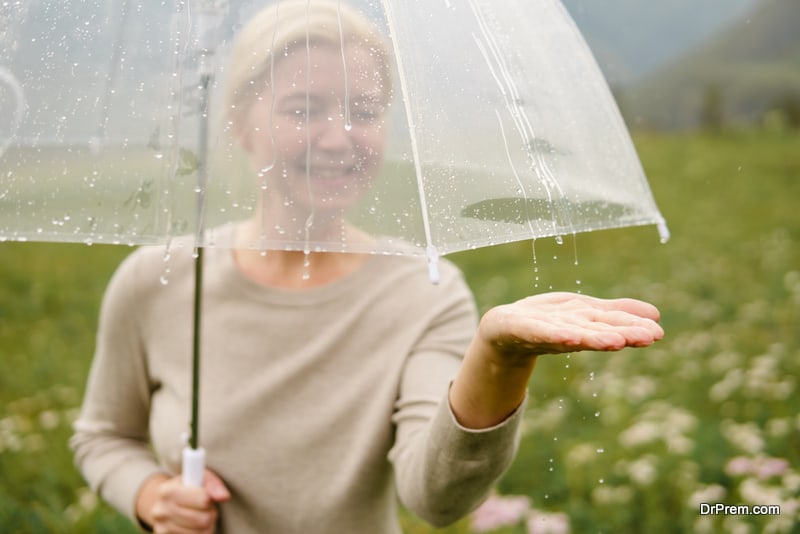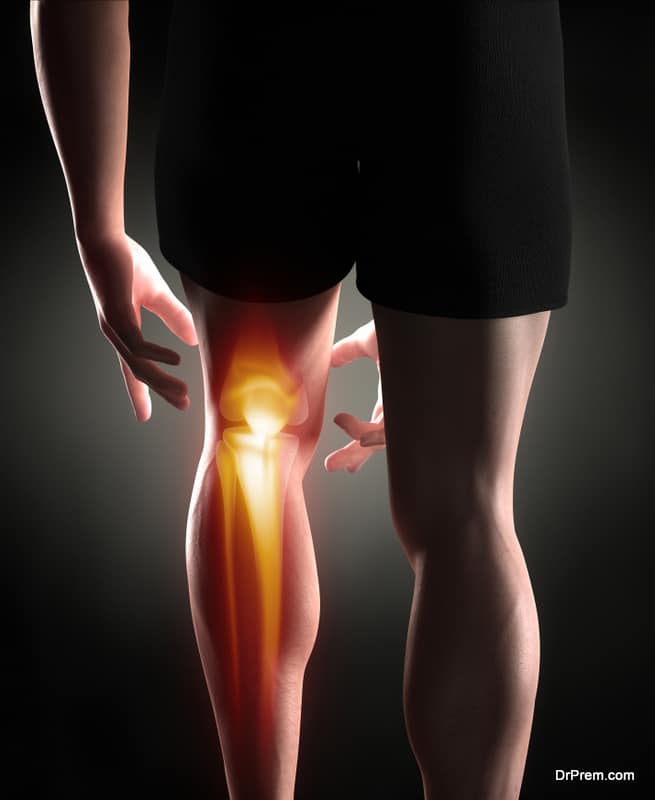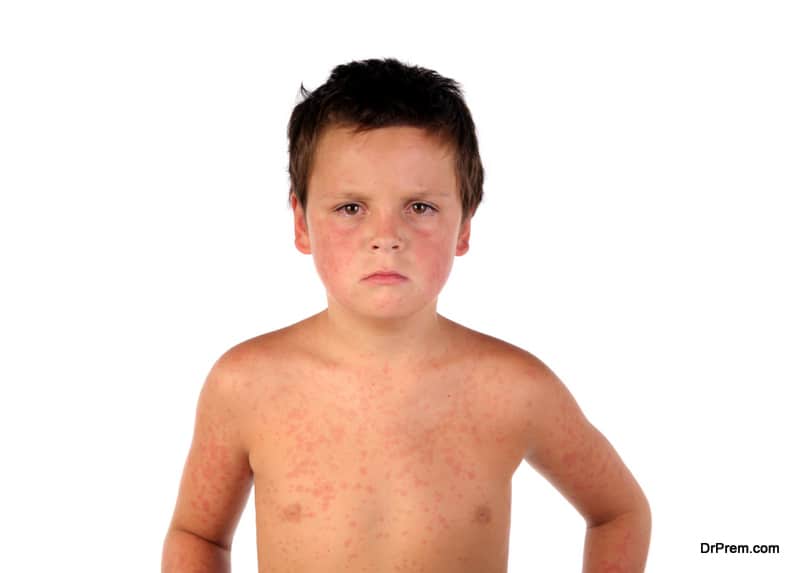A bright sunny day brings a smile on our face while gloomy winter days often make us depressed. Sunshine on my shoulders makes me happy; sunshine almost always makes me high the words penned by John Denver gives a fair indication of the effects of weather on human emotions.
In the wettest and coldest days of the season how many of us struggle not to get into the depressive mood? The number is countless. A number of studies have established that weather affects moods in many forms.
Every year nearly 5% of Americans suffer from a condition known as Seasonal Affective Disorder (SAD) in winters. Even though physicians blame poor light levels for SAD or seasonal depression, some people experience this in summer times too. Research also says that weather has nothing much to do with mood but given the overall evidence in studies it is just the opposite.
Why seasons affect moods?
 Let us take the symptoms of SAD, a well identified season-related mood disorder which is also known as ‘Winter Blues’ or ‘Winter Depression’. Of various reasons behind this condition, one is greatly linked to light.
Let us take the symptoms of SAD, a well identified season-related mood disorder which is also known as ‘Winter Blues’ or ‘Winter Depression’. Of various reasons behind this condition, one is greatly linked to light.
It is not only the coldness or the fall in temperature that affects mood but also insufficient light that is getting into the brain. Exposure to sunlight helps in light absorption through minute parts of our skull which regulates our circadian rhythm.
Just think of the birds twittering at the break of the dawn. It is their thin skull with better light absorption capacity that makes them wake up so early.
You cannot ignore the role of light while assessing the effects of weather on human emotions.
- Light stimulates chemical reactions in our brain lifting our mood and making us happy.
- The presence of light reduces the production of melatonin, the sleep-inducing hormone. This makes us feel less tired and sleepy.
- Sunlight also facilitates the release of serotonin, the feel-good hormone and helps in better neurotransmission.
To sum it up, it is not only the winter that induces Seasonal Affective Disorder but any seasonal change like a sudden cloud cover resulting in darkness can also affect our mood.
7 – Strange effects of weather on human emotions:
In view of the above facts, it would be interesting to learn about the strange effects of weather on human emotions:
1. Low mood:
Seasonal temperature variations are highly related to energy usage. In winter, your immune system works much harder to keep your body warm. You tend to eat more forcing your body to work harder which may make you lethargic.
Bacterial and viral infections common during winter make you feel low. Cold weather worsens chronic pain, especially in the elders. They tend to remain cocooned and badly suffer from low mood.
On the other hand, extremely hot and humid conditions make you sweat more and your body loses essential salts. A small study published in the British Journal of Psychology in 1984 showed a high level of humidity lowered concentration and increased sleepiness.
Inadequate salt replenishment through juices or electrolytes leaves your body exhausted and drastically lowers your productivity. Naturally, you are not in the best of spirits.
2. Disturbed sleep:
 Weather affects our sleep to a great extent and makes us feel more depressed. Cold climate induces lighter sleep depriving your body of the required recovery time from daily activities. Headaches and bad moods are common outcomes.
Weather affects our sleep to a great extent and makes us feel more depressed. Cold climate induces lighter sleep depriving your body of the required recovery time from daily activities. Headaches and bad moods are common outcomes.
You are also likely to suffer from low energy and other ailments. Our sleep gets disturbed in hot weather and high humid conditions too. You end up being in fatigue.
3. Driving in more aggression and other negative behavior:
 This is a marked effect of weather on human emotions, especially in warmer conditions. A major portion of the research analysis published in Emotion 2008 indicates that warmer weather makes people merrier. But it can be just the opposite, warmer conditions can make people more aggressive.
This is a marked effect of weather on human emotions, especially in warmer conditions. A major portion of the research analysis published in Emotion 2008 indicates that warmer weather makes people merrier. But it can be just the opposite, warmer conditions can make people more aggressive.
A study released in the Science magazine in 2013 showed a 4% and 14% increase in interpersonal violence and intergroup conflicts respectively. Extreme rainfall also induced a similar kind of behavior.
This can be attributed to a heightened level of irritability when people strive to accomplish certain things but fail to do so due to weather conditions. Extreme heat outside or severe downpour may confine you indoors preventing you from fulfilling an important task which can leave you upset.
4. Rain brings a mixed feeling:
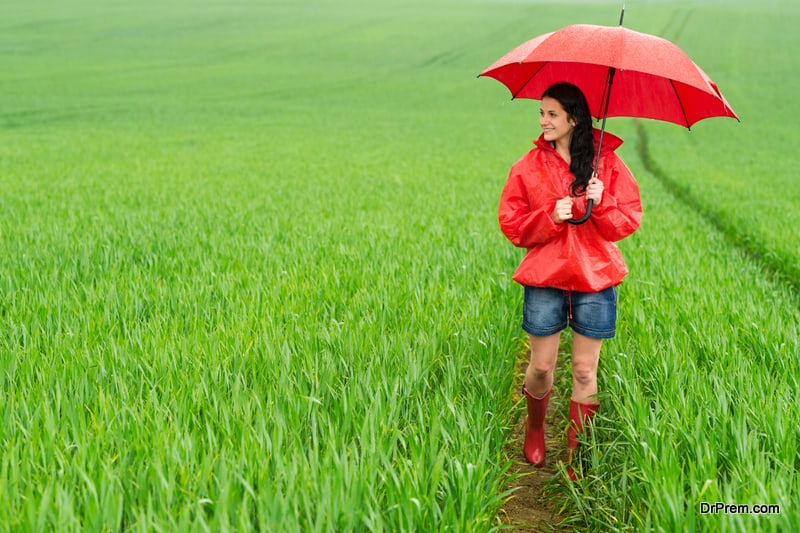 Rain makes you feel happy or sad? This will depend largely on the geographical location and other climatic factors. For example, people in many tropical countries welcome monsoon showers after months of scorching summer. In fact, this season is welcomed through a number of festivals and rituals.
Rain makes you feel happy or sad? This will depend largely on the geographical location and other climatic factors. For example, people in many tropical countries welcome monsoon showers after months of scorching summer. In fact, this season is welcomed through a number of festivals and rituals.
But if you are in London where rain is common in winter, you won’t enjoy that. In tropical countries, incessant rain without traces of sunlight for days does not leave people happy. They suffer from low moods. That initial enthusiasm in welcoming rain ebbs off.
Prolonged downpour makes outdoor travel nearly impossible. People neither prefer to stay indoors nor do they feel like stepping out. They socialize less and start feeling low. Here rain makes you feel depressed.
5. The Happy Complex of Spring:
 After the dull winter, spring is most welcome. People find the energy to engage more in outdoor activities. A study published in Psychological Science in 2005 found pleasant weather led to better mood, improved memory and broadened cognitive functions as the participants got to spend more time outdoors.
After the dull winter, spring is most welcome. People find the energy to engage more in outdoor activities. A study published in Psychological Science in 2005 found pleasant weather led to better mood, improved memory and broadened cognitive functions as the participants got to spend more time outdoors.
You feel happy even though you may have to manage your hormone fluctuations and fight allergens and toxins. Those vulnerable to seasonal allergies will not be that happy in spring. On the other side, an increased tendency to suicide is also observed in this season.
6. Increased suicidal tendency in warmer seasons:
 Another strange effect of weather on human emotions is revealed in a study review in Acta Psychiatrica Scandinavica in 2012 that studied the seasonal suicide pattern. It showed an increase in suicides during spring and early summer and a drop in the same during autumn and winter.
Another strange effect of weather on human emotions is revealed in a study review in Acta Psychiatrica Scandinavica in 2012 that studied the seasonal suicide pattern. It showed an increase in suicides during spring and early summer and a drop in the same during autumn and winter.
Increased social interactions lift your mood. But there are some people who feel left out of the social circle. Spring tends to bring in more suicide incidents as people get more energy to execute this dangerous plan.
7. Hypersensitive people more vulnerable to weather changes:
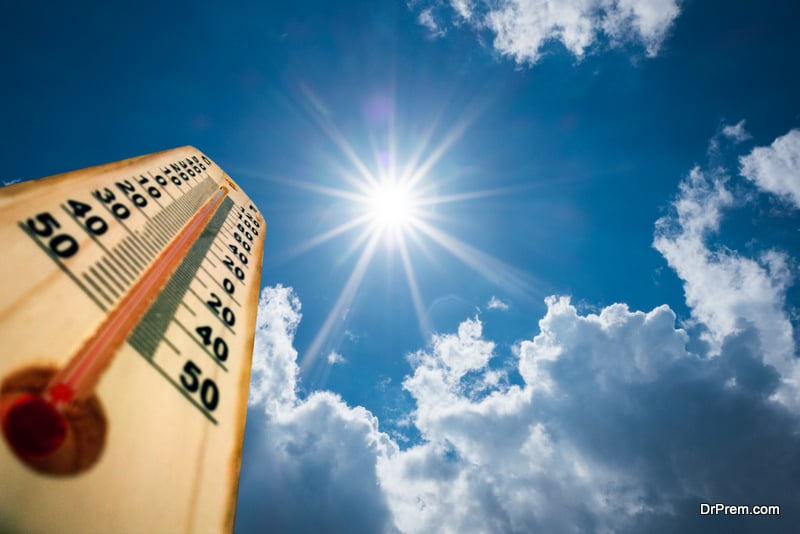 The effects of weather on human emotions are marked in highly sensitive persons constituting 15-20% of human beings. According to the research, hypersensitive people genetically differ from others with a normal level of sensitivity. This might provide an explanation that why some people are greatly affected by light, rain, sun or cold.
The effects of weather on human emotions are marked in highly sensitive persons constituting 15-20% of human beings. According to the research, hypersensitive people genetically differ from others with a normal level of sensitivity. This might provide an explanation that why some people are greatly affected by light, rain, sun or cold.
Coping up with weather changes:
 Weather-induced emotional changes can be managed. If you are a vulnerable person, be proactive during the weather changes. Keep in mind the effects of past seasonal changes and work on to improve the condition.
Weather-induced emotional changes can be managed. If you are a vulnerable person, be proactive during the weather changes. Keep in mind the effects of past seasonal changes and work on to improve the condition.
Never give in to the pressure of seasonal changes. Identify the triggers of allergy or depression. Take care of the diet. Take up more physical exercises to shrug off mood swings. If required, never hesitate to seek a professional condition to beat the weather blues.


